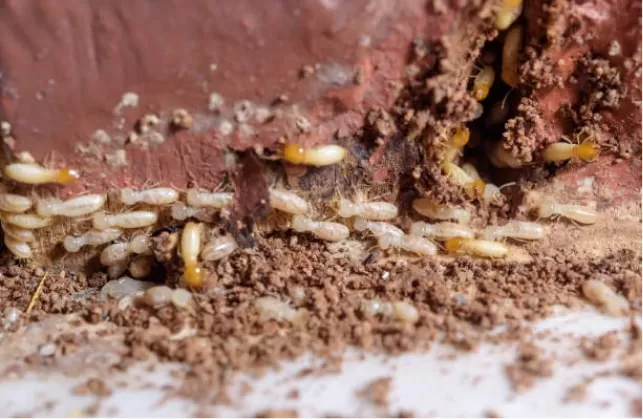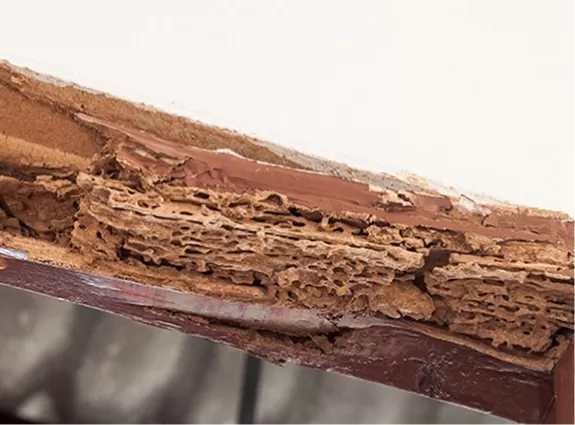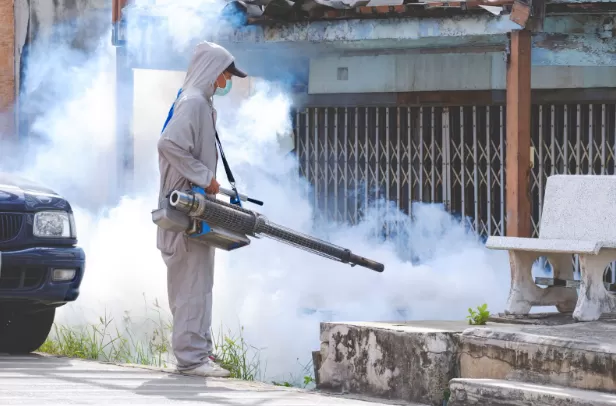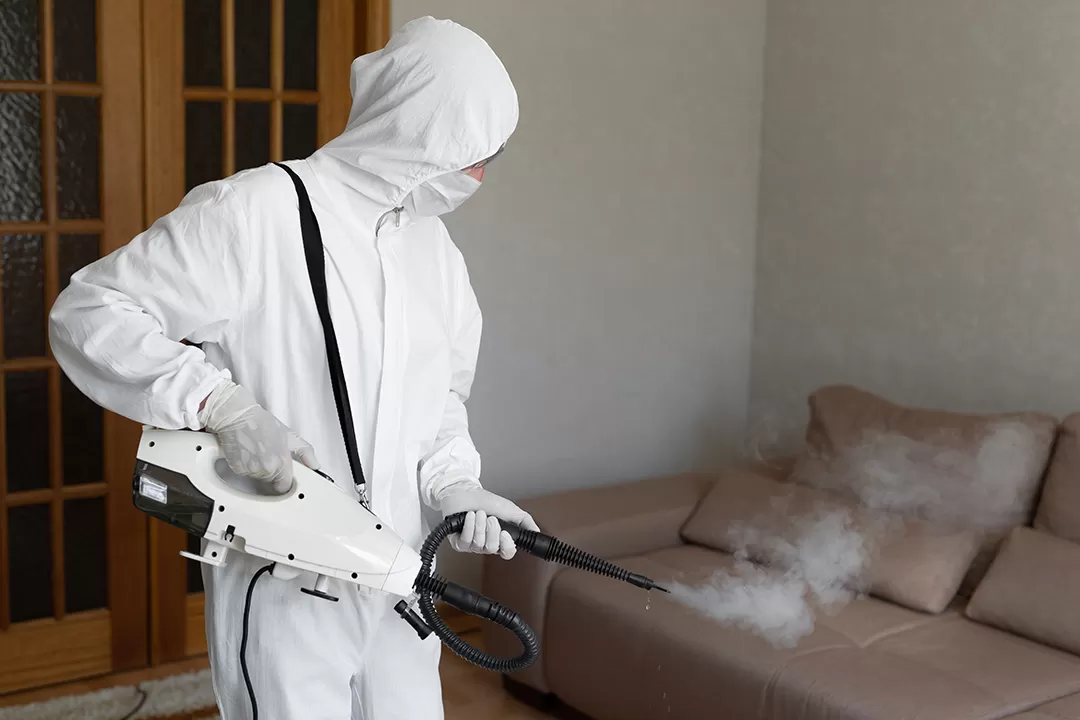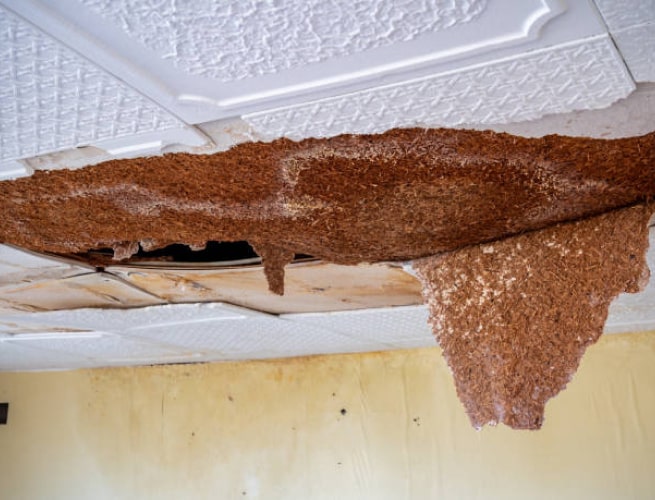Are you waking up to find red itchy welts on your skin? Worried they could be bed bug bites? Well, bite marks are a telltale sign of a bed bug infestation.
So, if you are worried that the crawling sensation at night and the marks on your skin in the morning are hinting towards a bed bug problem, you should investigate promptly.
The little critters can hide away before you can get to them. As such, bite marks are the easiest way to recognise a bed bug infestation. In this article, let’s learn how to identify bed bug bites. Keep reading to also explore different ways to treat and prevent itchy bites.
How to Identify Bed Bug Bites?
Symptoms of Bed Bug Bites
Bed bug bites are among the most common ways to identify a bed bug infestation. But to be sure, you must learn to distinguish between a bed bug bite and a bite planted by other pests.
Bed bugs can bite anywhere where there is skin. Usually, they bite on the parts of your body that are exposed when you sleep. This includes the face, neck, shoulders, arms, hands, and legs. These nocturnal parasitic insects release a small amount of anaesthetic before feeding. So, most people will not feel a bed bug bite at all.
Some people do not even develop any clear symptoms after being bitten. All they might notice is some irritation and inflammation surrounding a dark spot where the bed bug had bitten. Bed bug bites look red on white skin and purple on brown or dark skin. Usually, bed bug bites will form clusters or lines when multiple bites happen to be grouped together.
Typically, bed bug bites are itchy and cause some level of discomfort. For example, you might feel a painful burning sensation. However, you might develop more serious symptoms if you are hypersensitive to bites. Severe symptoms include blisters, fever, a swollen tongue, nausea, breathing difficulty, and irregular heartbeat.
In addition to physical symptoms, blood stains on bed sheets are a strong indicator of bed bugs. Beware, scratching a bed bug bite can cause bleeding and even lead to an infection. Getting bitten by bed bugs can also increase stress and disrupt your sleep. The continual lack of sleep can decrease your overall well-being and even cause low self-esteem and depression.
How Often Do Bed Bugs Bite?
Bed bugs can survive without feeding for weeks. So they may not be biting someone every single night. Even though this sounds good, it makes identifying a bed bug infestation very difficult. It can take weeks to notice bed bug bites and identify a pattern.
How to Treat Bed Bug Bites?
When it comes to fairly uncomplicated bed bug bites, they can be left to heal on their own. You may have to tolerate the swelling and itching, but the bites will heal automatically within a week or two. Unfortunately, there are very few things you can do to heal bed bug bites or accelerate the healing process.
When you notice a bed bug bite, the first thing you can do is clean the wound. You can use soap and water for this. This will remove any allergens that are causing itchiness.
You can also apply a cold compress to relieve itchiness or burning sensation. An ice pack or cold cloth will do the trick. Sometimes, simple home remedies such as using a thin paste of water and baking soda can be helpful.
Dealing with a dramatic immune response? This is usually an indication of an allergic reaction. You could apply over-the-counter hydrocortisone, anti-itch creams, epinephrine medication, or antihistamines for itchy bed bug bites.
If you continue to suffer from severe inflammation, swelling, or itchiness for a prolonged period, you should get medical attention. Sometimes, the bitten area can get infected and should then be treated with antibiotics. Often, severe itchiness can lead to further complications like scarring.
How to Prevent Bed Bug Bites?
Thankfully, you can do a few things to prevent bed bugs hiding in your room from biting you. First of all, you can buy a high-quality mattress cover and box spring cover. Using a cover with a good seal that you can zip around your box spring and mattress can trap existing bed bugs inside your bed. Then, get an encasement designed for bed bugs and keep it on for one year at least.
You can also get bed bug interceptors to keep bed bugs from climbing onto your bed. These are plastic dishes that you can place under furniture legs to trap bed bugs. If you do not want to buy interceptors, you can always make some yourself using common household supplies.
Bed bugs do not bite through fabric. Therefore, you could lower your risk of getting bitten by wearing clothes that cover most of your skin. However, be mindful that these pests can sneak into loose clothing. Long-sleeved pyjamas with pants fitted around the wrists and ankles will perhaps be good enough to offer sufficient protection.
Finally, take additional measures to keep your home free of bed bugs. To do so, be very careful not to carry the pests into your home. Do not bring second-hand furniture into your home without first checking it properly. When you buy new furniture, check that it does not have too many seams, crevices, or cracks to prevent bed bugs from hiding in them. Try to avoid materials such as stone, metal, plastic, and high-weave fabrics.
Furthermore, clean your bed and bedding regularly at high heat. Fill any cracks and crevices with glue or caulking. Be very careful when you come home from a high-risk area such as public transport or a hotel room. When staying at a hotel, keep luggage on racks. Kill any bugs and eggs you have found using a vacuum and hand steamer.
Conclusion
Remember, bed bugs multiply rapidly. Where there is one bed bug, you can be sure there are many more. So if you are having trouble sleeping and waking up to bed bug bites, you need to take measures to not only treat the bites but also find a way to solve the problem from its root.
In addition to treating their bites, you must take action to eradicate the bed bug population from your home. While simple measures such as vacuuming and hand steaming can help control a small bed bug population, you will need professional assistance if the infestation goes out of control. A qualified pest control professional can help you get rid of bed bugs effectively.


